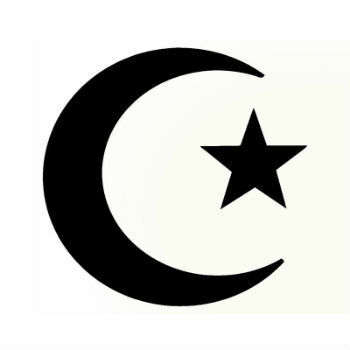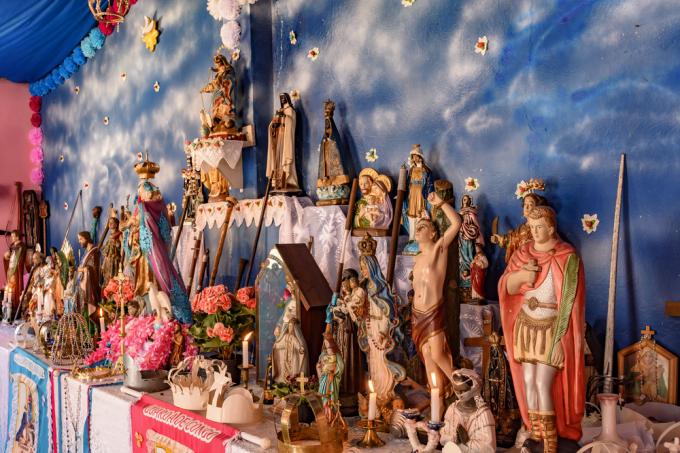Islam is the monotheistic religion founded by the Prophet Mohammed, in 622. "Islam" is an Arabic word meaning "submission".
Thus, those who obey "Allah" and accept Muhammad as his prophet are called Muslims. The term Allah, in the Arabic language, means "God".
 Al-Haram Mosque in the city of Mecca
Al-Haram Mosque in the city of Mecca
The holy book of Islam is called the "Quran" or "Koran". In it are gathered the words of God, revealed to the prophet Mohammed. Some characteristics of Islam are:
- Belief in the unity of God;
- the holy books that God revealed to guide mankind;
- the prophets;
- The angels;
- fatalism.
Quran
According to the religion Islam, the Koran or Koran, is a collection of God's revelations to the Prophet Muhammad. It was written in Arabic between 610 and 632.
This collection contains the exact words of God, revealed by the angel Gabriel. It is seen as a miracle and must be preserved unchanged.
The Koran is divided into 114 "surahs” (chapters) of different sizes. The first surah is a short introductory prayer and the rest are arranged by size, starting with the longest.
The first surahs revealed to the Prophet are minor, so much of the Qur'an is in reverse chronological order.
Muslims claim that in the Qur'an, God speaks of his essence, the relationship he has with human beings and how they will be held accountable before the Last Judgment.
Although the Koran refers to Muhammad and the ancient Islamic community, it offers moral guidance to people of all periods and races. It recognizes passages from the Jewish and Christian Old Testaments; where Jesus is considered a great prophet.
The Pillars of Islam
The Holy Law of Islam is called “Sharia”, the “road” by which God determines that Muslims walk.
THE Sharia regulates all aspects of life. These regulations cover essential religious duties known as the "five pillars”, designed to develop the spirit of submission to God. Are they:
- Profession of faith: “There is only one God and Mohammed is his prophet” is the fundamental creed of Islam.
- Ritual prayers: Muslims pray five times a day, always facing Mecca: at dawn, at noon, in the afternoon, at sunset and at bedtime, .
- donations: An annual contribution called “zakat” is offered by Muslims with possessions to the needy.
- Fast: During the Islamic month of Ramadan, Muslims fast daily from before sunrise until sunset. During fasting, the consumption of food, drinks and cigarettes is prohibited. Children, the sick and the elderly are released from the Ramadan fast.
- Pilgrimage: The pilgrimage to Mecca (Hadj) must be performed at least once in the lifetime of every Muslim. In Mecca, pilgrims circle a sacred shrine (the Black Stone, known as the Kaaba) seven times in the courtyard of the Al-Haram Mosque in the Saudi Arabia.
know more about Monotheism.

The waning moon, called hilarious in Arabic it is one of the Islamic symbols.
Islam groups
Followers of Islam fall into two main groups: the “Sunnis” and the “Shiites”.
Sunnis, who make up about 90% of Muslims, are known as the “People of the Sunna and the Collective”.
The name derives from the fact that they claim to follow the sunna or “the path taken” (the name given to the words and deeds of Muhammad). Furthermore, they claim to follow the paths of the “collective” of Muslims.
The Shiite group arose out of a dispute over the leadership of the Islamic community after Muhammad's death. The followers of your cousin and son-in-law There, consider themselves the only legitimate followers of the prophet. Several Shiite sub-divisions also formed.
Read too:
- Sunnis and Shiites
- Muslim culture
Mohammed
Mohammed (Muhammad, in Arabic) was born in the city of Mecca around the year 570.
He spent most of his life as a merchant, when in his early 40s he received the call of the angel Gabriel. He claimed to have been sent to bring the good news and warn his people against idolatry so that he could meet the true God.
Those who believed and obeyed the laws of the Qur'an would be rewarded with paradise, while those who rejected its message would be punished in hell.
Muhammad amassed opponents, especially among the wealthy merchant class. He migrated from Mecca to Medina, a city located 300 km north of Mecca, along with his followers.
This migration, known as "Hegira", it occurred in July 622, marking the beginning of the Islamic calendar. Currently, the Islamic calendar is in the year 1438.
In Medina, Muhammad became head of a new religious community which, in 629, went on a pilgrimage to Mecca, where he was received without resistance.
Recognized as a religious leader and founder of Islam, the prophet died in 632, after having spread Allah's message across much of the Arabian Peninsula.
read more:
- Religious intolerance
- India
- Moorish
- osama bin laden

